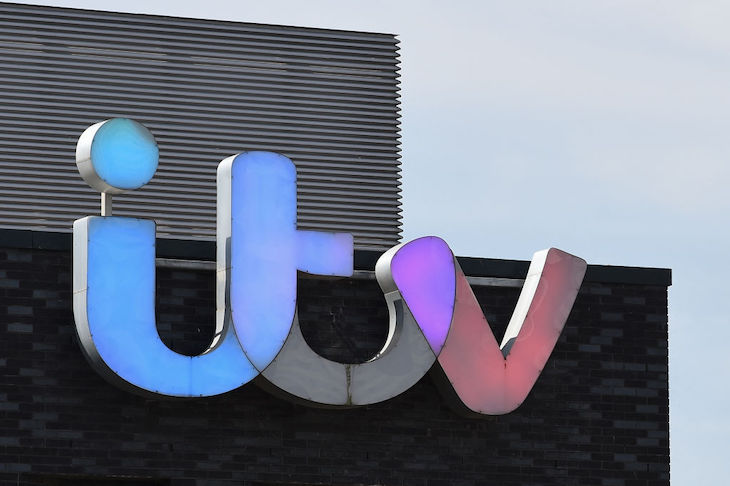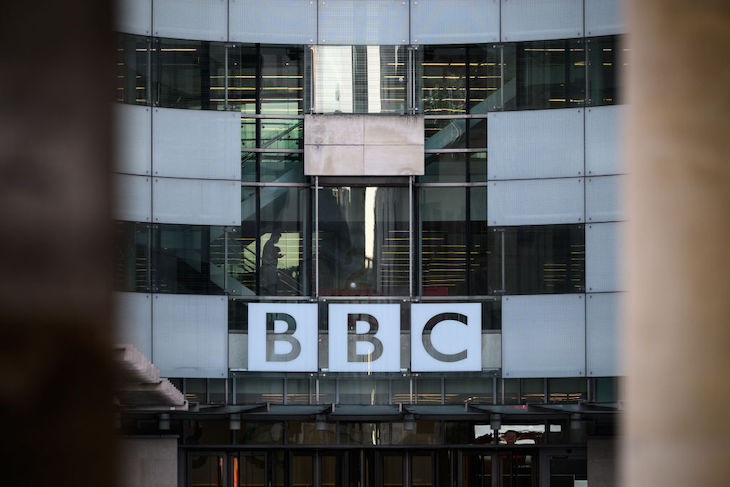The slow death of ITV makes for painful viewing. In its glory days of the 1980s and 1990s, the channel had a salty naughtiness, a thrilling random quality. Its kids’ shows were raucous or even scary, its crime dramas were raunchy, its quizzes and games were sparkly and crass and its highbrow offerings were spicy. The channel had an edge to it; watching ITV was aspirational and fun. It was cool.
ITV has swapped any distinctive offering for constant retreads of the same generic thrillers
But ITV has swapped any distinctive offering for constant retreads of the same kind of generic gloomy thriller; at the moment it’s tempting us with Red Eye, Protection and Grace. Swipe through ITVX and you will see endless title cards – serious-looking constipated faces, frowning – for similar shows: Malpractice, Out There, Until I Kill You, Angela Black, After The Flood, The Suspect, No Return, Redemption…and a heck of a lot of ‘Live Laugh Love’ reality shows of the Real Housewives/Ferne McCann variety.
Things could soon get even worse. All3Media – a subsidiary of our old friends in Abu Dhabi, Red Bird IMI – is reportedly in advanced talks to buy ITV Studios, the division of ITV that actually makes programmes. This would, we are told, create a new £3 billion production ‘powerhouse’, with ITV Studios spun out into a new company. But the possible break up of ITV is nothing to celebrate.
If this deal goes ahead, it is likely to mean that the speed of ITV’s decline is accelerated dramatically. The channel risks being cast adrift without a sustainable income stream. ITV would become just another channel, competing with every other Tom, Dick and Sky Max for an ever-dwindling pot of linear TV advertising revenue. As John Whittingdale, the former media minister, points out: ‘It is very difficult to sustain a purely advertising-funded channel with public service broadcasting obligations as the world changes. ITV have been very successful at developing their production arm, which has generated a large chunk of their revenues. But if they get rid of it, then they’re sort of back to square one.’ He’s right. ITV’s days would surely be numbered.
Perhaps even if the deal doesn’t go ahead, ITV is still doomed. The age of linear TV is undoubtedly coming to an end. ITV renewed its licence last year, meaning that, until 2034, it is committed to public service obligations, including offering national and local news output. In return, the channel gets a state-mandated priority on listings guides as the UK’s third channel. But in nine years’ time, as streaming continues to become more important, will that third channel status still matter? It seems unlikely. Come 2034, ITV may well decide that local news, in particular, is not worth the hassle.
If so, this will be a great pity. When it was originally conceived in the 1950s, locality was baked in to ITV. The fiefdoms of the ITV regional franchises – a network of independently owned regional companies – were established to encourage competition and innovation. The relaxation of the ownership rules in 1994 led to Carlton in London and Granada in Manchester gulping up most of the minnows, until, in 2002, the last vestiges of the regions’ identities disappeared.
The sense of something important being lost, as this process of centralisation happened, was hard to articulate. What did it really matter if Border or Grampian went up the swanny? But, along the way, we lost something important: the sense that ITV was catering for British – or, indeed, regional – audiences. ITV’s streaming service ITVX makes the results of this plain to see; there’s little on there to mark the channel out as any more British than Netflix or Amazon Prime.
TV’s history in recent years has been a slow, sad process of gulping globalisation. We’ve gone from the individuality – and often the eccentricity – of regional British studios, spread across the land, (‘and now, from Norwich, it’s the quiz of the week!’) to corporate monoliths that struggle to produce much programming that’s tailored only for a British audience. Television as we knew it coming to an end. The break-up of ITV will speed up this sad decline.








Comments